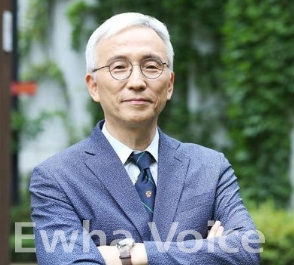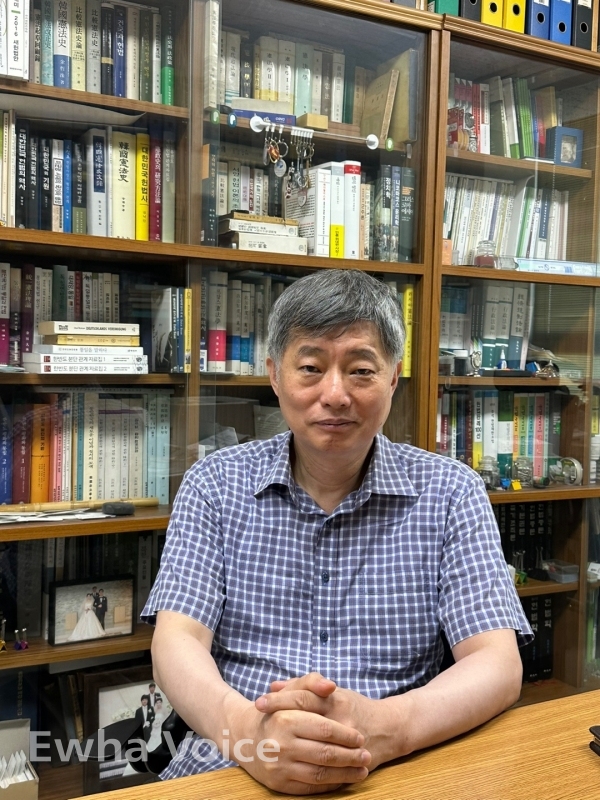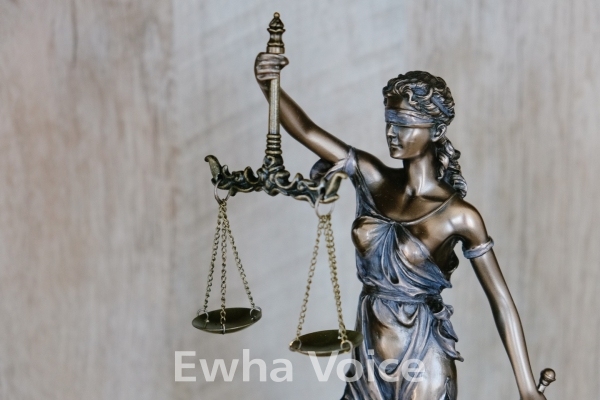Critical question emerges over public release of suspected criminals’ personal information

In the wake of repeated disturbing crimes that have rocked South Korea, public outrage has surged across the nation. One incident that occurred on May 22 involved a man assaulting a lone woman for no apparent reason, and on May 27, a woman fatally attacked another woman of a similar age after meeting her through a tutoring application. What’s more, since July 21 when a man stabbed against random targets at Sillim station, back-to-back “Don't Ask Why” stabbing rampages have been taking place in Korea. These incidents have sparked a heated debate about the disclosure of suspected criminals’ personal information.
To address the mounting anger and frustration of citizens, one YouTuber took the initiative to reveal a male suspect’s information on his YouTube channel on June 2, provoking further controversy about the topic.
South Korea has strict regulations regarding the disclosure of suspected criminals’ personal information. Such disclosure is permitted only in specific cases involving violent crimes utilizing brutal methods. The disclosure must also serve the common good, such as safeguarding freedom of information and preventing further crimes. It is important to note that disclosure of personal information is prohibited when suspected criminals are adolescents, and the system exclusively applies to suspects, not defendants.
The criteria of disclosure systems vary from country to country. In principle, Japan allows the full names of suspects to be reported nationwide. The United States allows disclosure of the name, age, gender, race, and residence even before prosecution of the arrested, unless it interferes with the investigation. The United Kingdom, similar to South Korea, opens the information of suspects only for the sake of crime prevention and public interest.
As South Korea struggles to battle the increase of violent crimes, the critical question persists: when is it appropriate, if ever, to publicly release the full information of suspected criminals?
Institutional irony: Different identity disclosure standards for suspects under investigation versus defendants on trial
Until the early 2000s, South Korea actively revealed personal information of criminal suspects. Until then, the prompt disclosure of information including the suspect’s name and home address by way of the media was natural for specific violent crimes. However, since the Supreme Court introduced the right to claim damages for the release of personal information in 1988, this practice has gradually diminished, making it increasingly rare to come across such cases nationwide.
With the recent wave of violent crimes in South Korea, public concern has reached unprecedented levels, leading to an increased number of cases where criminals’ personal information has been disclosed. Since 2010, a total of 40 criminals have been subject to disclosure under the Special Act on the Punishment of Specific Violent Crimes, and this number continues to increase year by year.
However, Professor Oh Yoonsung from the Department of Police Administration at Soonchunhyang University, believes that this number falls short of what is warranted.

Oh has consistently advocated for the expansion of the system in television debates and news interviews.
“The enactment of laws to punish these heinous crimes, which was introduced on April 15, 2010, was a response to a series of cruel incidents,” he stated. “However, fewer than 50 criminals have been identified since, and the public is rightfully angered by a government that seemingly prioritizes the human rights of criminals over the well-being of victims.”
On the other hand, Professor Chang Young-soo from Korea University School of Law strongly opposes the expansion of the system.
Chang explained that the system should be based on the constitutional principle of the presumption of innocence. Therefore, it may be deemed unconstitutional to designate a suspect as a criminal and disclose his or her personal information.
“When discussions arise about the expansion of the personal information disclosure policy, many fail to consider the principle of the presumption of innocence,” Chang pointed out. “However, I think their premise is wrong due to the rightful precedence of said principle under the Constitution.”

Chang further elaborated that the current requirements for the disclosure of suspects’ identities are appropriate, and that none of the suspects whose personal information has been disclosed have been legally innocent because their cases have been strictly deliberated.
“If a suspect is acquitted at a time when the criteria for disclosing the suspect’s personal information have been eased, the system will face significant challenges due to instances of wrongful accusation,” Chang said. “Following the principle, in dubio pro reo, which means a defendant should not be convicted by the court when there is a reasonable doubt about their guilt, our focus should be on ensuring that no one is unfairly accused.”
As expansion of the personal information disclosure could infringe on the human rights of the suspect and suspect’s family members and the reduction of it could increase the risk of additional crimes, Chang stressed that it is important to consider the two factors in determining whether to open personal information. He additionally explained that the disclosure should be considered when it is a serious crime that is essential to take action for preventing additional crimes and the significance of disclosing is considered more than human rights.
Meanwhile, the opinion of the public appears to be divided on whether the system is necessary.
According to a survey conducted by Ewha Voice from June 28 to Aug. 23, 98 percent of 52 respondents approved of the criminal disclosure system. The reasons included that the system can guarantee freedom of information, reduce repeat offenders, and prevent similar crimes afterwards. However, more than half of the respondents replied that the current system needs some improvements, one being that the criteria for disclosure of personal information should be clearer and others including more up-to-date information about the suspects to minimize the possibility of revenge.
When asked about the uncertified disclosure of suspects by individuals, opinions diverged. 66.7 percent of the respondents mentioned that it would be a means of respecting the public’s right to know, while the other 33.3 percent voiced their concerns about distorting the truth and causing social confusion.
Pyo Eunseo, a freshman majoring in Cyber Security in favor of the disclosure of criminal suspects’ identities, shared her opinion that the standards of the policy need to be more lenient. Similarly, Min JiAe, a freshman from the HOKMA College of General Education, expressed that she would want to be notified if someone near her were a suspected criminal since victimization is a constant possibility for every individual.
On the other hand, Lee Hyungseok, a citizen residing in Daejeon, shared a different perspective. “I am s k ep tical ab o u t th e prevention of further crime via disclosing criminals’ information,” Lee said.
“Personally speaking, it feels more of a means of temporarily putting public rage to rest. Rather than expanding the range of criminals to reveal, I think it would be better to apply harsher penalties to those who commit violent crimes.”
Shin Sooyoun, another citizen from Daejeon, agreed with Lee when it comes to stricter penalties. Yet Shin stressed that disclosing personal information of criminal suspects can be a comfort to the victim and the victim’s family while condemning the suspect at the same time. However, she still believes it is important that the disclosure be done within legal boundaries since it could have other ramifications.

Striking a balance between criminal privacy and public interest
Acknowledging the prevailing opinion, the South Korean government is pushing for measures to expand the disclosure system of suspected criminals. Following the creation of a website that reveals the information of landlords who do not return deposits earlier this year, the government also plans to implement a related system from Sept. 29, publicizing the list of the names, addresses, and ages of landlords who commit rental fraud. In addition, the ruling party proposed a bill to the National Assembly on June 21 for the expansion of the disclosure of serious criminals’ personal information, which is currently awaiting approval.
Professor Oh emphasized the need to simplify the system’s standards. The current criteria under the Special Act, consisting of descriptive terms, make it challenging to accurately determine whether to open information to the public or not.
Therefore, Oh suggested information to be disclosed without the requirement of a judging committee in cases involving serious crimes such as sexual homicide, which might evoke criticism in society. He also proposed the implementation of a police photograph system, which captures images of suspected criminals at the time of arrest to prevent them from using outdated pictures or hiding their faces with their hair.
Professor Chang criticized the current domestic deliberation committee of personal information disclosure for being established by region and argued that it is necessary to integrate national committees to unify standards.
According to Chang, the most ambiguous criteria for determining whether or not to reveal personal information concern “disclosure for the public’s right to know.” Since the subcommittee is divided into 18 committees under each region’s police agency, there are inconsistencies regarding the public’s right to know, even if the standards for personal information publication are legally set. Therefore, it is necessary to integrate committees nationwide for uniformity and consistency of standards given the limited occurrence of personal disclosure.
To supplement the current system, Chang argued that if the disclosure is confirmed according to strict standards, the system needs to be reorganized so that accurate information that meets the system’s purpose can be delivered to the public instead of inaccurate data such as old identification photos.
“The link between the principle of the disclosure system and the presumption of innocence is strong. Therefore if the criteria are too lenient, individuals found not guilty may still suffer irreparable damage,” Chang stressed. “A comprehensive evaluation that considers both the positive aspects of the personal information disclosure system and the potential risks of misjudgment is needed.”


